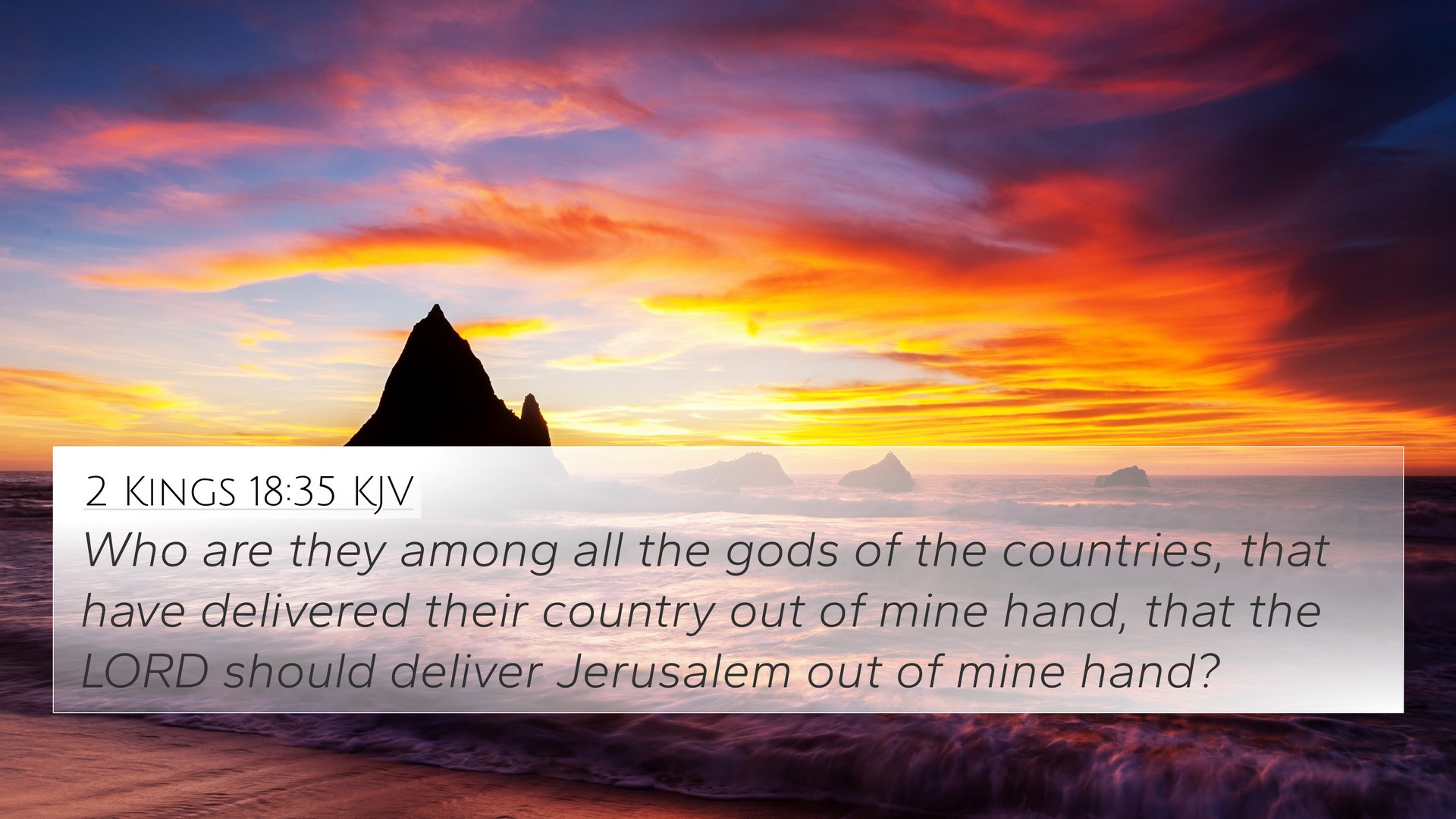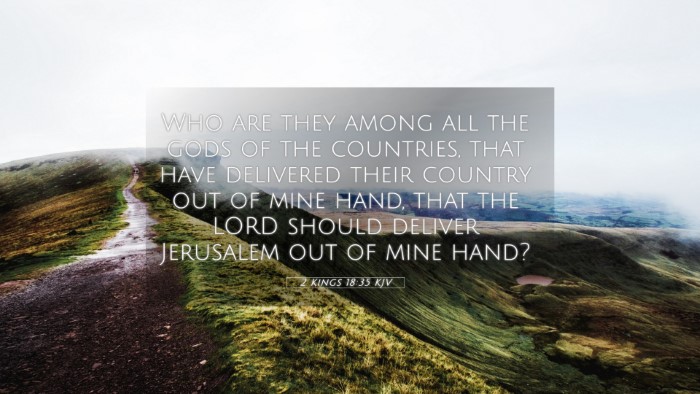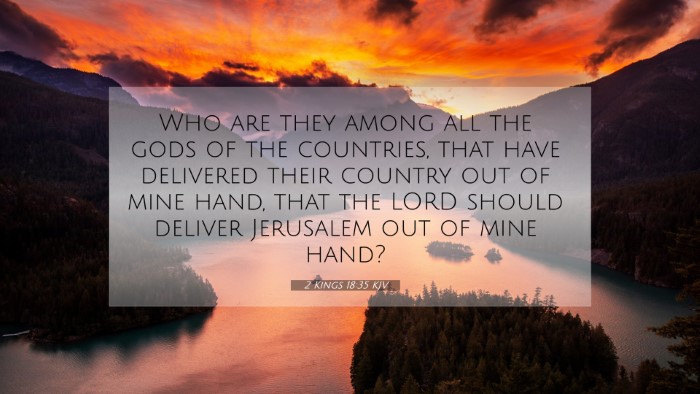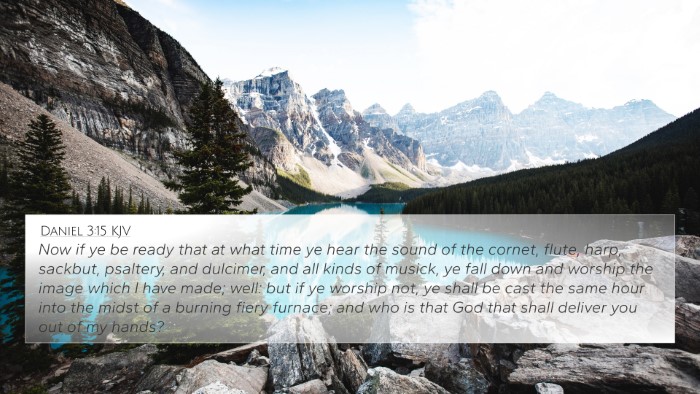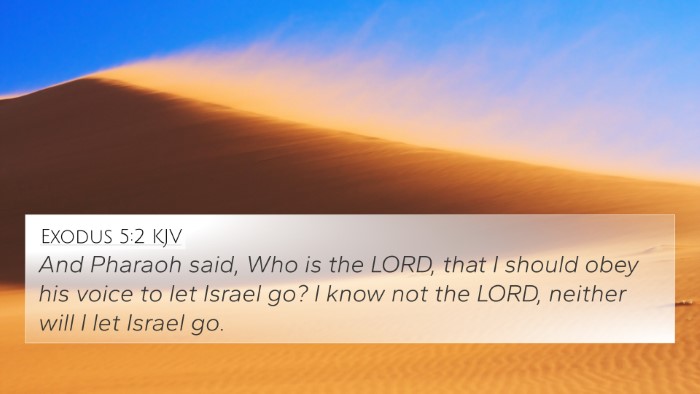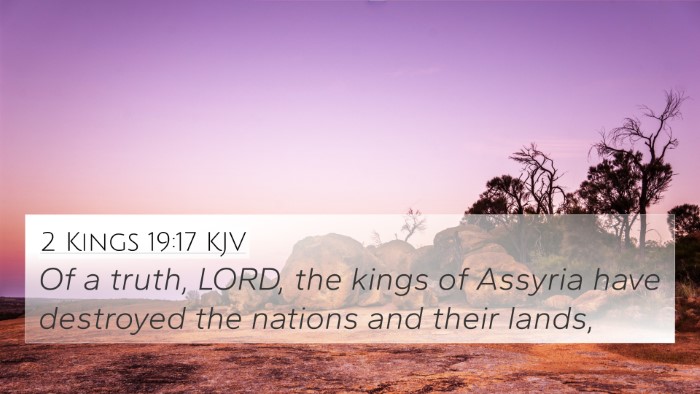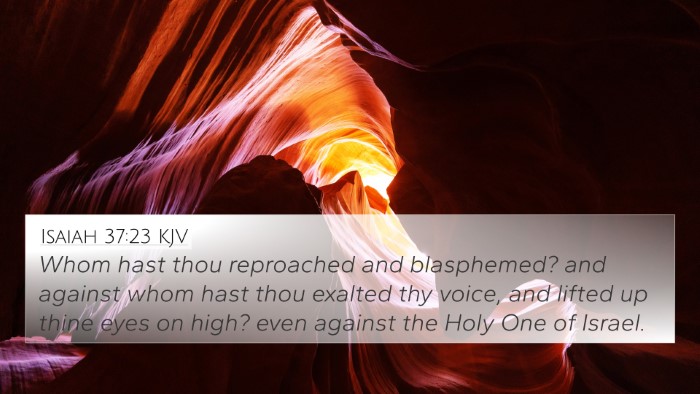Understanding 2 Kings 18:35
Verse: "Who among all the gods of the lands have delivered their countries out of my hand, that the LORD should deliver Jerusalem out of my hand?" (2 Kings 18:35)
Context and Background
This verse is situated within the narrative of King Hezekiah's reign over Judah, particularly during the Assyrian siege of Jerusalem led by King Sennacherib. The Assyrians had already conquered numerous cities and were asserting that their gods had been instrumental in their victories. Sennacherib’s taunt in this verse reflects a common tactic of ancient nations that sought to undermine the credibility of a besieged city’s faith and reliance on God.
Commentary Insights
-
Matthew Henry's Commentary:
Henry emphasizes the audacity of Sennacherib as he questions the might of the God of Israel in comparison to the false gods of other nations. He notes that Sennacherib's arrogance is misplaced as God’s power and sovereignty far exceed that of any idol. He points out that this serves as a reminder of God’s unique authority over His creation and that every other god is ultimately powerless.
-
Albert Barnes' Commentary:
Barnes highlights the historical context, noting that Sennacherib listed the fallen cities as evidence of his divine favor. He argues that the verse showcases the folly of relying on false gods and reinforces the theme of Yahweh's unmatched power. Barnes posits that this narrative serves to strengthen the faith of the people of Judah during their time of crisis, leaning into the promise of deliverance from God.
-
Adam Clarke's Commentary:
Clarke argues that this verse reflects both Sennacherib's ignorance of the true God and the futility of idolatry. He emphasizes the rhetorical question posed by Sennacherib, noting its implications—while other lands had gods they claimed for protection, the living God—not a mere statue—was with His people. Clarke’s analysis encourages believers to recognize the living nature of their faith in contrast to the deadness of idol worship.
Bible Cross-References
Understanding this verse is enriched by cross-referencing with the following related scriptures:
- Isaiah 36:18-20: Sennacherib’s blasphemous declarations are detailed further, showcasing his desperation.
- Psalm 115:4-8: A commentary on the nature of idols compared to the living God.
- Isaiah 37:10-13: God’s prophetic assurance of Jerusalem's deliverance from Sennacherib.
- 2 Kings 19:35: The account of the angel of the Lord striking down the Assyrian camp.
- Jeremiah 10:5-6: A proclamation of God's uniqueness compared to idols.
- 1 Samuel 5:1-5: The story of Dagon’s humiliation before the Ark of the Covenant.
- Exodus 15:11: A declaration of God's greatness over all other 'gods'.
- Matthew 4:10: Jesus reinforces the worship of the one true God, dismissing the idols that draw worship away from Him.
- Romans 8:31: The assurance that if God is for us, none can stand against Him, applicable to the threats posed by Sennacherib.
- 2 Corinthians 10:5: A reminder that our weapons are not carnal, as illustrated in the confrontation between Sennacherib and God’s people.
Thematic Connections
This verse and the surrounding narrative invite readers to explore several key themes:
- The sovereignty of God: Highlighted through His ability to deliver and protect His people, in contrast to the impotence of idols.
- Faith in adversity: The necessity of trusting God in the face of overwhelming odds, as displayed by Hezekiah and the people of Judah.
- The futility of idolatry: The passage serves as a critique of relying on false gods, emphasizing the need for authentic worship.
- Divine deliverance: A recurring biblical theme asserting that God intervenes in human history to save His chosen ones.
- Judgment against pride: Sennacherib’s pride leads to his downfall, a lesson echoed throughout Scripture.
Conclusion
2 Kings 18:35 serves as a powerful reminder of God's sovereignty, the impotence of idols, and the faithfulness required of His followers during times of trial. Through the lens of cross-references and commentary, readers can glean a deeper understanding of the connections between the events of Hezekiah's reign and the broader themes of scripture. Engaging in a comparative Bible verse analysis allows for a more enriching exploration of God's Word, encouraging believers to trust in the Almighty who transcends all earthly powers.
Further Study Suggestions
For those interested in diving deeper, consider utilizing:
- Bible Concordance: To find related verses quickly and explore thematic connections.
- Bible Cross-Reference Guides: Helpful tools to aid in discovering related passages and enhancing study methods.
- Bible Reference Resources: Various materials offer insights into connecting Old and New Testament themes.
- Cross-Referencing Bible Study Methods: Explore systematic approaches to understand biblical narratives and connections.
